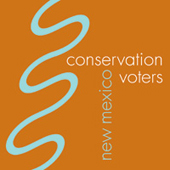| Main | Congressman Harry Teague Works to Secure Timely Funding for Veterans Administration »
Wednesday, March 25, 2009
Reps. Heinrich and Luján Comment on Passage of Omnibus Land Bill
Rep. Heinrich's floor speech today
Finally, finally, finally. After many incarnations and years of struggle for some pieces of the legislation, the huge Omnibus Public Land Management Act passed the U.S. House today by a vote of 285-140 and is on its way to President Obama's desk. This president, of course, will sign it.
Two of New Mexico's members of Congress who voted for the bill have so far weighed in on passage of the legislation, explaining the its significance for the state. The legislation includes more than 160 separate provisions that will protect our national parks and forests, preserve historic places and invest in water infrastructure. It includes designation of the Sabinosa area in Northern New Mexico as wilderness.
A strong advocate for this legislation, Rep. Heinrich went to the House floor today to speak in favor of the bill and to highlight some of the positive effects it will have on the First Congressional District. Watch the video above to see it. Excerpts:
“The Rio Grande has been the lifeblood of our community for thousands of years, and for the Pueblo of Sandia this bill will make possible much-needed investments in their water infrastructure and vital agricultural irrigation systems.
“And from east to west, this bill will reauthorize the Route 66 Corridor Program which is essential to preserving the historical character and vibrancy of our beloved Central Avenue.”
Rep. Ben Ray Luján also voted in favor of the legislation, which will conserve thousands of acres of land for future generations and make water resources available to previously underserved communities, according to a statement released today by his office. Five bills that Rep. Luján introduced were included in the package — including four pieces of legislation that address water availability (Rio Grande Pueblos Irrigation Infrastructure Improvement Act, the Eastern New Mexico Rural Water System Authorization Act, the Navajo-San Juan Indian Water Rights Settlement, and the New Mexico Aquifer Assessment Act) and one piece of legislation that preserves valuable wilderness 40 miles east of Las Vegas, New Mexico (the Sabinoso Wilderness Act).
“New Mexico’s natural beauty marked by scenic vistas and natural forests is what makes our state beautiful and unique. Today, Congress made an historic statement to protect our beautiful landscapes and the natural resources contained within them by passing the Omnibus Public Land Management Act,” said Rep. Luján. “By passing the Land bill, the House made a commitment to conserving treasured land for the next generation and making water resources available to communities that need it.”
Rep. Luján introduced five pieces of legislation included in the Omnibus Bill. Those measures were originally introduced several years ago by Sen. Jeff Bingaman in the Senate and then-Rep. Tom Udall in the House. As chairman of the Senate Energy and Natural Resources Committee, Sen. Bingaman authored the Omnibus Bill and shepherded it through the Senate.
"Water availability is a critical issue in New Mexico, and these pieces of legislation will provide many communities with stable access to water," said Rep. Luján. "Communities in New Mexico need access to this precious resource, and this legislation will help alleviate the problems they face with water availability and allocation."
The Rio Grande Pueblos Irrigation Infrastructure Improvement Act would allocate federal resources to Indian tribes in New Mexico to assess and repair irrigation infrastructure in order to help conserve water resources in the area.
The Eastern New Mexico Rural Water System Authorization Act would authorize the Secretary of the Interior to provide financial assistance to the Eastern New Mexico Rural Water Authority for the planning, design, and construction of the Eastern New Mexico Rural Water System.
The Navajo-San Juan Indian Water Rights Settlement would resolve a water dispute that began in 1975 between the state of New Mexico and the Navajo Nation over the resources in the San Juan River. In 2005, a settlement was reached between the state of New Mexico and the Navajo Nation that resolved this dispute. However, it cannot be implemented without legislation that most notably authorizes a series of water infrastructure projects--including creating a water settlement and providing for funds for water resources. The passage of this legislation would resolve the Navajo Nation's claims to the San Juan River, provide the Tribe with an important and long-term water supply, and protect the interests of non-Indian water users in the basin.
The New Mexico Aquifer Assessment Act would authorize the Secretary of Interior to conduct a study on the water resources of New Mexico.
Rep. Luján also introduced the Sabinoso Wilderness Act that would designate approximately 16,000 wilderness acres located 40 milies east of Las Vegas, New Mexico. The land includes a unique and diverse ecosystem that contains vast woodlands and rocky canyons, as well as thriving wildlife and vegetation.
"New Mexico is known as the Land of Enchantment because of our people, beautiful landscapes, clear skies, and fresh air," said Rep. Luján. "The Sabinoso Wilderness embodies the value and beauty of our land. The ecosystem that represents the wilderness is unique to the region and supports diverse wildlife and vegetation—which is why the Sabinoso Wilderness Act is supported by hunters, ranchers, conservationists, and residents who want to preserve the land for future generations. The language will preserve valuable and treasured land, providing the next generation with the opportunity to enjoy it.”
March 25, 2009 at 05:36 PM in Environment, Land Issues, NM Congressional Delegation, Rep. Ben Ray Lujan, Rep. Martin Heinrich (NM-01), Water Issues | Permalink





















